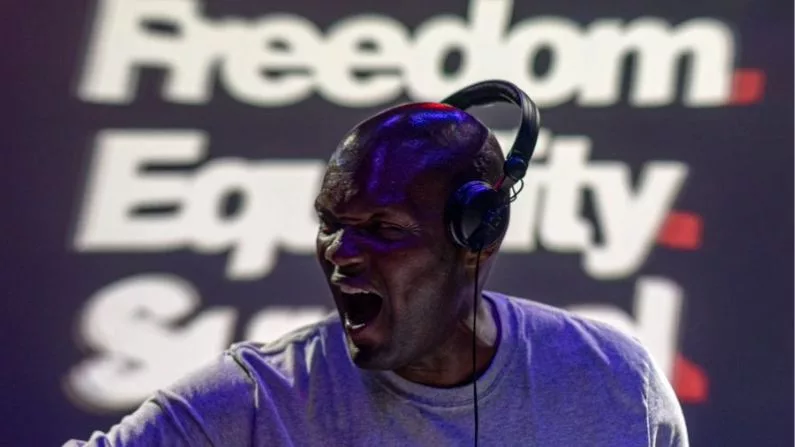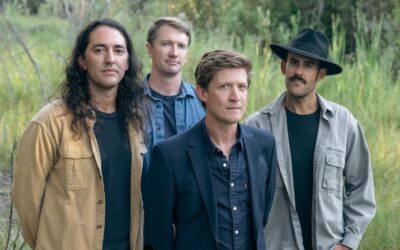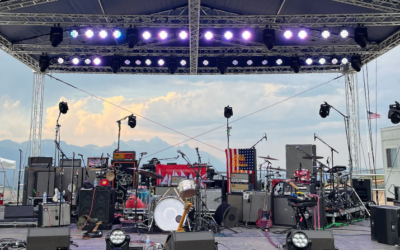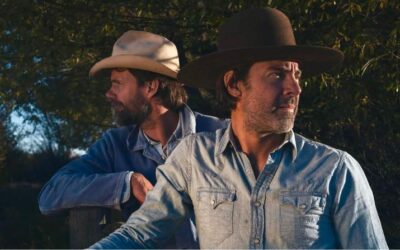Baltimore DJ and producer Joe Nice is credited for popularizing dubstep in the United States. Since 2001, Nice has performed extensively across the globe, including 50 countries across six continents, and has accumulated countless fans with his enthusiastic stage presence, top-notch selection, and skillful mixing.
Nice is also well known for his trailblazing monthly radio program and corresponding record label of the same name “Gourmet Beats” delivering bass-heavy music with a sociopolitical message.
In advance of his headlining set at The Virginian Saloon on Friday, May 12th, presented by and with the Something Else Crew, Joe Nice spoke with KHOL.
The following interview transcript has been edited for clarity and brevity. This conversation was recorded on Thursday, May 11.
JACK CATLIN/KHOL: When and how did you first hear dubstep? And what made you want to play it out for others to enjoy?
JOE NICE: It was really a UKG thing. A friend of mine back in 1997, 1998, brought over a couple of UK garage CDs. I was in college at the time and I stopped deejaying. I knew there was something musical that I wanted to do with myself. I just didn’t know what that was. And then [my friend] brought out these UK garage CDs and I was like, “Wow, this is it! This exactly what I want to be playing.” M.J. Cole, Artful Dodger, DJ Luck & MC Neat, Norris The Boss Windross. You know, if you’re an old UKG head, you know what I’m talking about. This dark, high-energy stuff that I wanted to play. We didn’t know we were calling it dubstep back then, but it was obviously 138 beats per minute, 140 beats per minute. So a lot of Groove Chronicles, Early Horsepower, Kode 9, El-B, that became the roots of what we call dubstep. Now the rest is history.
I started playing shows locally in Baltimore in 2001 as part of a four-person crew called the 2 Charming Crew, and we all focused on different aspects of the U.K.-influenced bass music. So I was the dubstep guy. Now you can imagine back in 2001 when you had grime, eight bar was moving and U.K. garage was really hot. I’m the dubstep guy and people were like, ‘What the hell is this? I don’t understand this. I can’t dance to this. I don’t like this. This isn’t cool. How come I can’t hear the bass on my laptop speakers? Why can’t I dance to it?’ I heard it all. I played a lot of opening sets at 8:30 at night in front of ten people.
I knew that if I wanted to push this sound out there, I had to get the reps in. And ultimately reps equal reputation. So if you had a reputation for being the guy that consistently pushes something, that consistently puts himself out there and gives everything, regardless of what the crowd size is, all right. People are going to have to take notice. It’s taken a long time to go from undesirable to undeniable. Dubstep has now become a phenomenon, and it’s not just a phenomenon that started, let’s say, a decade ago with a bunch of “bro step.” No, it’s been around much longer than that. We’ve been around considerably longer than that. And there’s a bunch of people who I’m quite close to, friends-wise, and have deep relationships within certain parts of London that are the creators and purveyors of this sound. And I’m happy to continue to be involved in that history because it’s a rich musical history. And it’s not just the history, it’s a heritage and a tradition.
KHOL: Another passion of yours is raising awareness about socioeconomic and sociopolitical issues. You’re a strong advocate for diversity, representation, and inclusion on the festival circuit. And this quote I read of yours really hit home. You said, ‘When you sweep dust under the rug, all that dust makes a pile under the rug that you can no longer ignore. These festivals can’t keep ignoring the proverbial dust under the rug, which is the continual erasure of Black people, indigenous people, women, and members of the LGBTQ community.’ I would love to have you expand on that for us.
JOE NICE: So much of festival culture is a microcosm of America. I’m a Black person in America. So by default, the odds are always going to be stacked against me because the United States was built and founded on racism. And I don’t think there’s really much debate on that. If you did not know my background and you just looked at me, you would just say, ‘Okay, he’s a Black guy from America,’ but I’m not an American. I was born in England. My parents are Caribbean, so my lineage is not of a Black American. Even my background somewhat separates me from Black Americans in the United States. It’s no different than if you are a Nigerian and you come to America. Most people just look at you and say ‘yeah that’s a Vlack person.’ But when you say, ‘Hey, look, I’m not from America or I’m from Nigeria or I’m from Jamaica or I’m from Barbados,’ there is that sort of nationalist bias that comes from being a Black person who is not a Black American. So I want to go ahead and clarify that before I continue to expand on the answer to your question.
There’s an additional layer of hesitancy. There’s a lack of cultural awareness from Black Americans to understand Black people who are not American. So as a result, if Black people are going to have that difficulty understanding a Black person’s culture who is not from America, naturally white people are going to have that difficulty Part of what I’ve seen is, and we’re seeing it consistently, is not only the consistent racism that we see in a lot of these events, but the erasure of a culture that was built almost entirely by Black people. When we talk about the genre that I’m involved in dubstep, yes, there are obviously a bunch of white folks that were involved in dubstep, specifically in South London, but you look at a lot of the people that were involved in making dubstep all those years ago, the majority of them were Black people. But if you were to go ahead now and ask your random festival attendee, okay, give me five dubstep artists, their first five people that they’re mentioning, I would be willing to bet you none of them are going to be Black people, unfortunately. Yet many Black people were involved in not only the creation of the culture but keeping the culture alive and thriving like it is now.
I don’t want the history, the heritage, and the legacy of dubstep to be whitewashed. We see it a lot in other genres and I don’t want it to happen to this genre. So part of what I’ve done recently, I’ve talked about my rider and my performance contracts and I’ve talked about that because I want to try to enforce what everyone said. What all the talent buyers and promoters said they were going to do in light of the deaths of George Floyd and Breonna Taylor. May 25th, 2020 changed a lot for a lot of people in America at the corner of 38th and Chicago streets in Minneapolis, Minnesota. And then we saw Black squares on Instagram. Everybody was home and in lockdown. Nobody could go anywhere. Nobody was doing anything. And then a lot of talent buyers and promoters said, ‘hey, we’re going to do better. We’re going to do differently by Black people. We’re going to be more inclusive, we’re going to be more diverse, we’re going to be more fair.’ Then 2021 happened. What happened? A lot of that went out the window.
So these rider amendments that I put in my contracts, it’s really more about making sure that these people who are in charge of putting on shows do what they say they’re going to do. It’s put up or shut up. That’s really all it is. If you’re going to talk the talk, walk the walk. And again, I’m not asking for Swiss chocolate at every show. I’m not asking for Beluga caviar and Evian water in a glass bottle. I’m not asking for extravagant stuff. I’m asking for basic stuff that not only would improve diversity and inclusion and, quite honestly, help in safety, but it’ll provide other options to hopefully make our culture more sustainable. When I talk about racial or gender diversity in lineups, that’s relatively easy to do. For the most part. When I talk about putting conspicuous harm reduction in a venue, we’re seeing more of that now. Now, granted, I’m not saying you go out and hire a couple of nurses at your venue. That’s not what I’m looking for. But if you can provide some sort of basic harm reduction, if someone has too many adult beverages or someone looks unwell. Okay. Go ahead and make sure that they’re okay.
There’s an old saying in the medical industry, ‘An ounce of prevention is worth a pound of care’. Maybe we should adopt that more in electronic music. Let’s look into that. The stuff that I’m asking for is easy stuff. Set up recycling bins in your venue. How difficult is that? This isn’t crazy stuff. Provide more nonalcoholic options at clubs and festivals. Not everybody wants a Corona. Not everybody wants rum and Coke. Some people would just like kombucha. Some people wouldn’t mind a carbonated water with a slice of lemonade. This would make so many people feel recognized, seen, and belong to a part of what we want to do here not only entertainment-wise but as a business practice. Because I think the more inclusive you are with your business practice, it’s probably just a better business model. Also, if you consistently shut out a group of people because you don’t make them feel welcome. I’m not necessarily saying we specifically cater to a specific group of people. What I am saying is that we make the business or we make our events in such a way where no one feels excluded. That’s the perspective. That’s the frame of reference. That is the focus.
Listen above for KHOL’s full conversation with Joe Nice.





